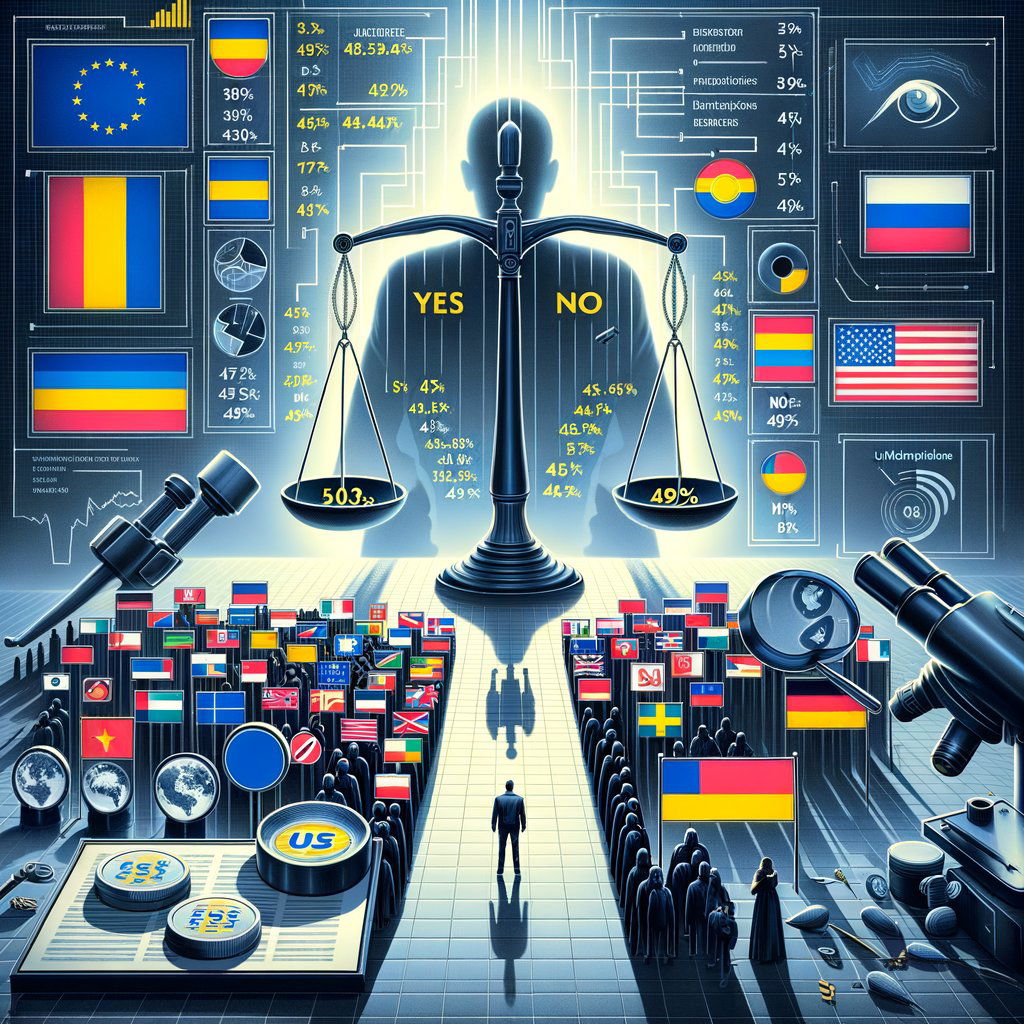Image created by AI
Moldova's Tightrope Walk Towards EU amid Claims of Election Fraud
A whisper-thin margin has tilted Moldova's recent referendum in favor of joining the European Union—a decision that comes under the murky cloud of electoral fraud claims and accusations of Russian meddling. This critical juncture in Moldova's political history saw a polarizing sway, with the "yes" vote clinching narrow victory at 50.39 percent against the 49.61 percent "no" vote, data from the election commission detailed on Monday after the majority of ballots had been tallied.
EU officials were vocal regarding unwanted interferences, pinpointing Russia as the chief disruptor in what has been deemed unaccustomed intimidation tactics in Moldovan electoral affairs. Nonetheless, the incumbent, President Maia Sandu, stands as a beacon for pro-EU constituents, despite her re-election campaign being overshadowed by allegations of a democratic assault.
The result of Moldova's EU referendum: Yes 50.39%. No 49.61%.
— Arti (@_a_arti_) October 21, 2024
Was did the voices coming from the high level of the European Union, demanding the transformation of the European Union into a federal state affect that the losing the game of those in favor of European Union… pic.twitter.com/TNQdKea7Zs
An eleventh-hour influx of votes from the pro-EU diaspora repositioned the preliminary results in an election that juxtaposes Moldova's geopolitical leanings. The tight race not only underscores the nation's divide but also propels Sandu into a November 3 run-off, as neither candidate surpassed the 50 percent requirement.
With 97.7 percent of votes accounted for, Sandu currently leads the presidential race, possessing 41.91 percent of the electorate's favor. Alexandr Stoianoglo, her foremost opponent and advocate for balanced foreign policy, trails with 26.32 percent. Stoianoglo has expressed intentions to cultivate relationships with not just the EU and U.S., but also Russia and China—a stark contrast to Sandu's EU-aligned vision.
Tensions peaked following Sandu's claims of an attempt to purchase approximately 300,000 votes, casting a grim light on the voting process’s integrity. Amidst these allegations, Ilan Shor—a tycoon living in Russia fulfilling a fugitive status—has been accused of orchestrating voter bribery, triggering intense scrutiny and multiple criminal investigations.
Moldova's security forces have taken substantial measures, including the dismantling of online disinformation campaigns and the unveiling of an alleged Russian program designed to foment civil disobedience.
The results act as a microcosm of Moldova's complex relationship with its powerful neighbor and its aspirations towards Western integration. As this former Soviet satellite state navigates the aftermath of a fraught referendum, international observers and the Moldovan electorate will closely monitor the legitimacy and repercussions of these critical votes. In the balance hangs Moldova's European ambitions and its democratic foundations, now to be tested more than ever.










